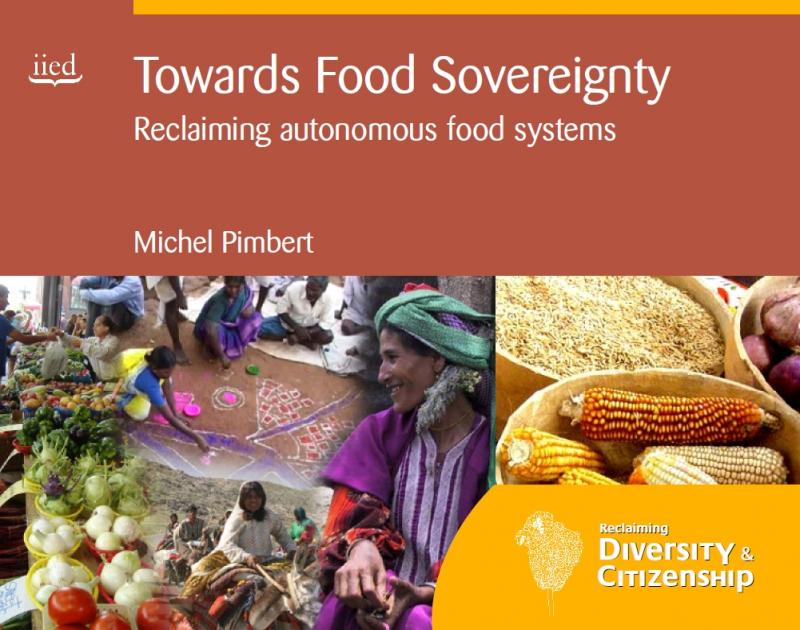Pimbert, Michel. “Another World is Possible for Food and Agriculture.” Chap. 1–3 in Towards Food Sovereignty: Reclaiming Autonomous Food Systems. London: IIED, 2009.
The first part of this e-book highlights the global importance of food and agriculture systems for livelihoods, landscapes, and the environment. Approximately 2.5 billion people—men, women, and children—live directly from agricultural production in both rural and urban contexts.
For the past 60 years, mainstream neoliberal policy has encouraged and justified the elimination of small-scale food producers in both industrially developed and developing countries. This process of undermining and eliminating small-scale food producers is linked with the expansion of a development model that considers small and medium-scale farming, artisanal fishing, nomadic pastoralists, and indigenous communities to be outside “modernity.” The social and environmental costs of this model of development are increasingly high and are summarized here using the latest information available.
The origins of the concept of food sovereignty and the recent history of the movement are then briefly described. The food sovereignty movement has largely arisen in response to a deep social, economic, and environmental crisis generated by the dominant model of food and agriculture. To date, the food sovereignty movement has developed a broad vision and discourse. It has identified a range of policy shifts and directions for national governments and other actors who seek to implement food sovereignty within their societies. These reversals in policy and practice are presented in the closing section of Part 1 of this multimedia publication.
(text by Michel Pimbert)


